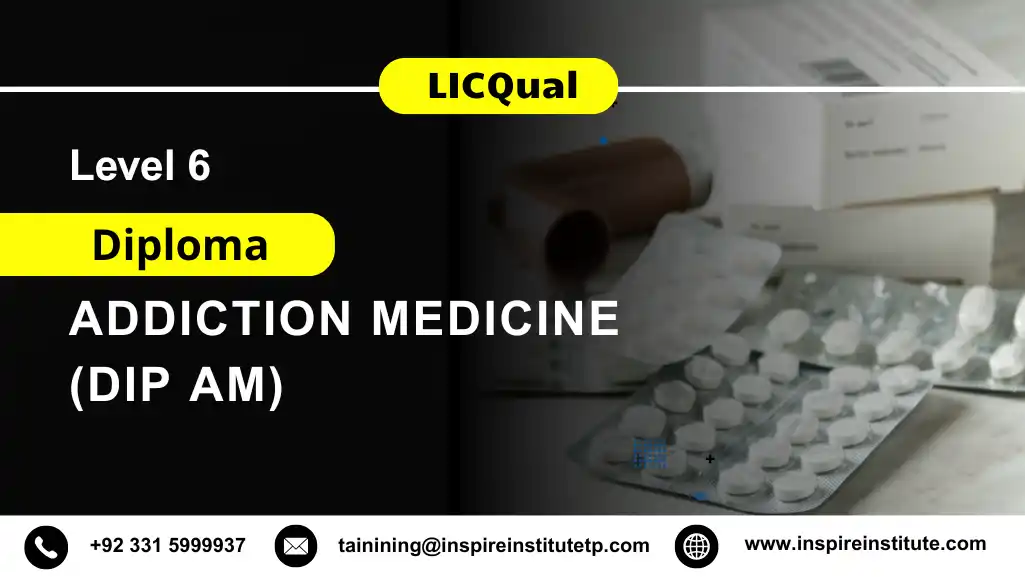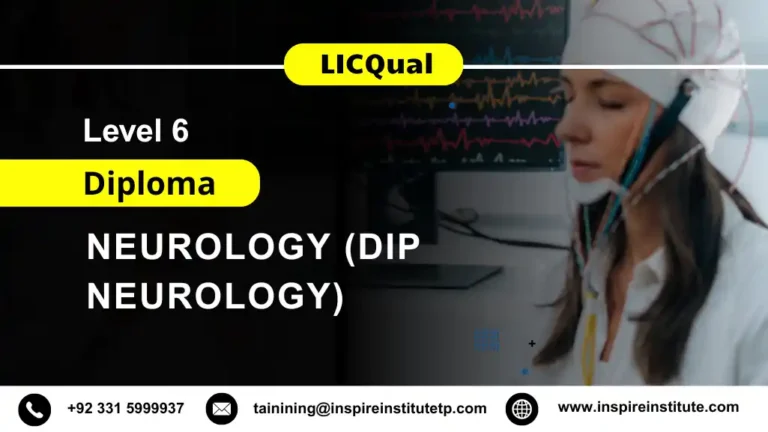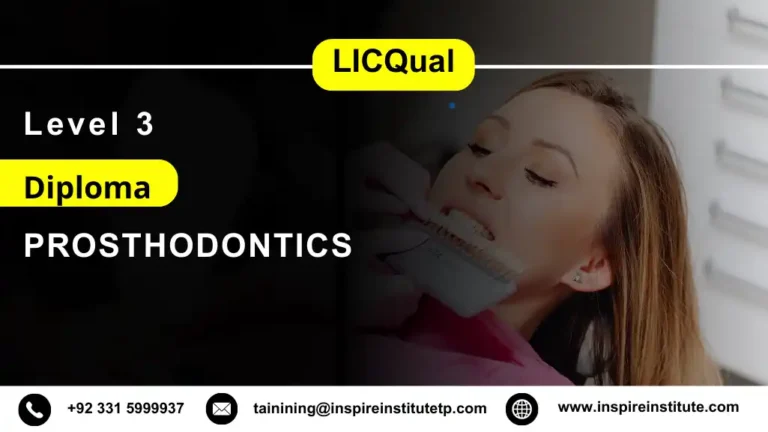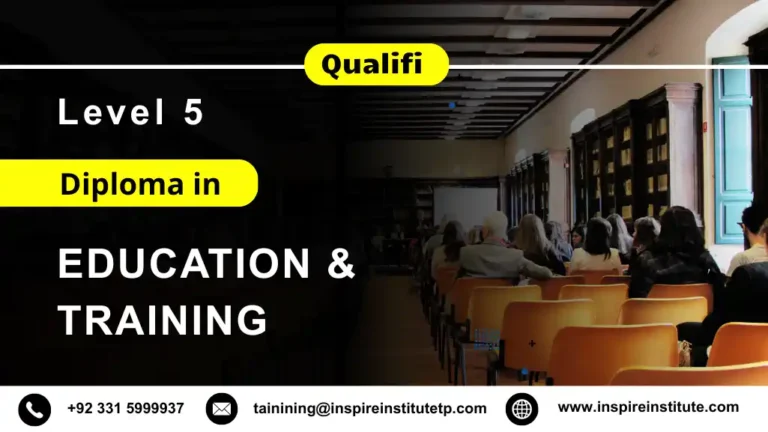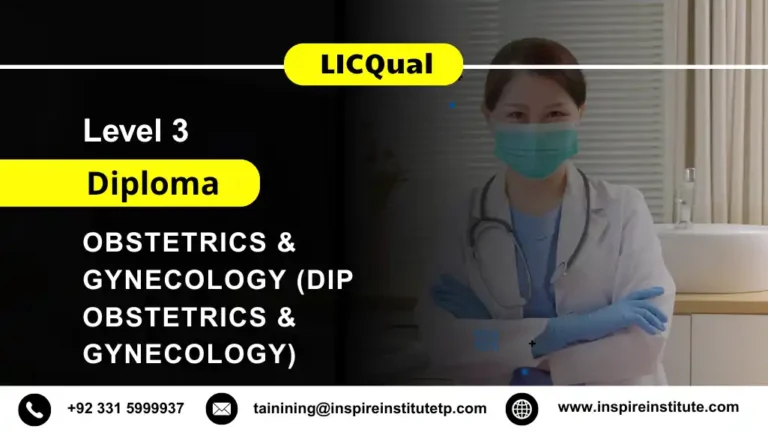LICQual Level 6 Diploma in Addiction Medicine (Dip AM)
The LICQual Level 6 Diploma in Addiction Medicine (Dip AM) is a UK-accredited qualification designed for healthcare professionals, clinicians, and aspiring medical leaders seeking to deepen their expertise in the prevention, assessment, and management of addictive disorders. With the growing global burden of substance abuse and behavioral addictions, professionals equipped with advanced knowledge in addiction medicine play a crucial role in improving patient outcomes and supporting public health initiatives. This diploma addresses the increasing demand for skilled practitioners in this highly specialised field.
The purpose of the LICQual Level 6 Diploma in Addiction Medicine is to provide learners with a robust understanding of addiction science, encompassing biological, psychological, and social aspects of substance use and dependency. The programme integrates theoretical frameworks with practical applications, allowing learners to apply evidence-based strategies in clinical settings. It prepares professionals to deliver high-quality care, develop treatment plans, and implement preventive interventions for individuals and communities affected by addiction.
Learners undertaking this diploma will gain in-depth knowledge of the pathophysiology of addictive substances, neurobiology of addiction, and the psychological underpinnings of addictive behaviors. The course also explores pharmacological and non-pharmacological treatment modalities, harm reduction strategies, and relapse prevention techniques, enabling graduates to confidently manage complex cases in clinical practice.
The LICQual Level 6 Diploma in Addiction Medicine also strengthens professional competencies such as clinical decision-making, critical thinking, leadership, and patient-centered communication. Graduates develop the skills to create evidence-based intervention programs, conduct clinical audits, and contribute to research initiatives aimed at advancing addiction medicine practices globally.
Why Choose this Qualification
The LICQual Level 6 Diploma in Addiction Medicine (Dip AM) is a cutting-edge qualification for healthcare professionals, clinicians, and medical leaders seeking to develop advanced expertise in addiction management. Addiction medicine is a growing field, and the demand for qualified professionals is increasing globally. This diploma equips learners with the knowledge, skills, and practical experience necessary to address complex substance use disorders, implement evidence-based interventions, and improve patient outcomes.
Key Reasons to Choose this Qualification
Specialist Knowledge
- Gain in-depth understanding of the neurobiology of addiction, behavioral science, and psychological factors affecting substance use.
- Explore the pharmacology of addictive substances and their impact on physical and mental health.
- Study evidence-based treatment modalities, including medication-assisted therapy and psychotherapy approaches.
- Understand societal, cultural, and ethical considerations in addiction care, ensuring safe and responsible practice.
- Develop the ability to critically evaluate clinical literature and integrate research findings into practice.
Practical Application
- Apply theoretical knowledge through case studies, clinical simulations, and assignment-based learning.
- Develop the skills to assess, diagnose, and manage complex addiction cases in real-world healthcare settings.
- Enhance competency in planning and implementing personalized treatment programs for diverse populations.
- Build experience in relapse prevention strategies, harm reduction, and patient-centered care techniques.
- Improve collaboration with multidisciplinary teams to deliver holistic addiction treatment.
Recognised Qualification
- Earn a prestigious UK-accredited Level 6 Diploma that validates your expertise in addiction medicine.
- Gain an internationally recognised credential to advance your professional credibility and career.
- Meet global standards in addiction treatment, enhancing opportunities in hospitals, clinics, and community health organizations.
- Demonstrate commitment to professional development and evidence-based practice.
Flexible Learning Pathway
- Study at your own pace with assignment-based learning, ideal for working professionals.
- Access high-quality online resources, guidance, and academic mentorship to support learning.
- Balance career responsibilities with academic advancement effectively.
- Progress through structured modules that provide clear milestones and measurable outcomes.
Evidence-Based Training
- Engage with the latest research, clinical guidelines, and innovations in addiction medicine.
- Learn to critically evaluate scientific evidence and implement validated treatment strategies.
- Develop data-driven decision-making skills to improve patient care and safety.
- Stay updated on emerging trends and policies in substance use management.
Career Development
- Enhance career prospects across hospitals, rehabilitation centers, community health services, and research institutions.
- Qualify for roles such as Addiction Specialist, Clinical Consultant, Research Coordinator, or Program Director.
- Build a foundation for postgraduate studies or advanced specializations in addiction medicine.
- Gain transferable skills applicable to public health and mental health sectors.
Enhanced Patient Impact
- Deliver ethical, patient-centered care that improves health outcomes and quality of life.
- Implement culturally sensitive and sustainable treatment approaches.
- Develop skills in patient education, counseling, and support for long-term recovery.
- Lead initiatives to reduce the societal burden of addiction through preventive strategies.
Professional Growth
- Strengthen leadership, clinical reasoning, and communication skills.
- Foster reflective practice and continuous professional development.
- Equip yourself to lead multidisciplinary teams and mentor junior healthcare professionals.
- Drive innovation in addiction medicine and contribute to advancing global healthcare standards.
This LICQual Level 6 Diploma in Addiction Medicine (Dip AM) offers a unique blend of specialist knowledge, practical skills, and professional growth opportunities. By choosing this qualification, learners position themselves as experts in addiction medicine, ready to make a meaningful impact on patients, communities, and healthcare systems worldwide.urology. It offers a measurable impact on professional development, clinical competence, and healthcare excellence globally.
Course Overview
LICQual UK Awarding Body
Average Completion Time:
6-24 Months
Study Units: 6 Units
Evidence & Assignment Based
Mandatory Units
Who Should Take This Course
The LICQual Level 6 Diploma in Addiction Medicine (Dip AM) is designed for healthcare professionals and medical practitioners who aspire to advance their expertise in addiction management. The program is suitable for individuals aiming to deepen their clinical knowledge, develop practical skills in addiction treatment, and lead patient-centered interventions. This course combines theoretical learning with applied clinical experience, ensuring learners acquire competencies essential for managing substance use disorders effectively.
This course is suitable for
Healthcare Professionals
- Doctors, nurses, and allied health professionals seeking to specialise in addiction medicine.
- Clinicians aiming to expand their understanding of substance use disorders and treatment protocols.
- Healthcare providers looking to integrate evidence-based addiction interventions into practice.
- Professionals wanting to improve patient outcomes through advanced addiction care strategies.
- Individuals seeking recognised qualifications to enhance career credibility in addiction services.
Mental Health Practitioners
- Psychologists, counselors, and therapists working with clients affected by substance abuse.
- Professionals interested in understanding the psychological aspects of addiction.
- Practitioners aiming to implement cognitive-behavioral therapy and other therapeutic interventions.
- Mental health specialists seeking to collaborate effectively with multidisciplinary addiction teams.
- Individuals looking to develop patient assessment, monitoring, and relapse prevention skills.
Clinical Researchers
- Researchers studying addiction, substance use trends, and treatment outcomes.
- Professionals aiming to design and implement evidence-based studies in addiction medicine.
- Individuals seeking expertise in critical evaluation of scientific literature related to substance use.
- Researchers aiming to publish findings that inform global clinical practice and policy.
- Practitioners interested in translating research evidence into clinical practice.
Public Health Professionals
- Individuals involved in health promotion and community addiction prevention programs.
- Professionals developing public health strategies for substance abuse reduction.
- Experts aiming to implement data-driven addiction intervention policies.
- Public health leaders seeking to evaluate and improve community-based treatment programs.
- Those wanting to enhance patient engagement and outreach for addiction services.
Hospital and Clinic Staff
- Professionals working in inpatient or outpatient addiction treatment centers.
- Staff aiming to improve patient assessment, care planning, and recovery management.
- Clinicians seeking advanced skills in multidisciplinary collaboration within hospital settings.
- Individuals focusing on implementing ethical, safe, and culturally sensitive care.
- Healthcare workers aiming to deliver specialised interventions for complex addiction cases.
Medical Educators
- Academics and lecturers interested in teaching addiction medicine concepts.
- Professionals seeking to develop curriculum and training programs in addiction care.
- Educators aiming to mentor healthcare students and junior practitioners in addiction treatment.
- Individuals looking to integrate evidence-based research into educational programs.
- Faculty seeking recognised credentials to enhance professional development and teaching standards.
Pharmacists and Clinical Pharmacologists
- Professionals involved in managing medications for substance use disorders.
- Individuals seeking knowledge in pharmacotherapy and medication-assisted treatment (MAT).
- Practitioners aiming to monitor drug interactions and patient safety effectively.
- Pharmacists wanting to contribute to multidisciplinary addiction care teams.
- Professionals aiming to optimise treatment outcomes using evidence-based pharmacological approaches.
Aspiring Medical Leaders
- Healthcare professionals aspiring to leadership roles in addiction services.
- Individuals aiming to develop strategic decision-making and clinical management skills.
- Professionals seeking to lead multidisciplinary teams in hospitals, clinics, or community programs.
- Practitioners wanting to influence policy and best practice in addiction medicine.
- Those aiming to establish themselves as specialists and mentors in addiction healthcare globally.
This LICQual Level 6 Diploma in Addiction Medicine (Dip AM) is ideal for healthcare professionals, clinicians, educators, and researchers committed to advancing their knowledge, enhancing practical skills, and driving excellence in addiction treatment. Graduates are prepared to take leadership roles, improve patient outcomes, and contribute meaningfully to the evolving field of addiction medicine.
Course Benefits
The LICQual Level 6 Diploma in Addiction Medicine (Dip AM) is a UK-accredited qualification designed for healthcare professionals, addiction specialists, and aspiring medical leaders who aim to advance their expertise in diagnosing, managing, and treating substance use disorders. This comprehensive, assignment-based Diploma in Addiction Medicine integrates theoretical knowledge with practical applications, enabling learners to assess, implement, and evaluate effective addiction treatment strategies. Through evidence-based learning and flexible study pathways, this qualification equips professionals to provide high-quality addiction care, improve patient outcomes, and contribute to advancements in clinical addiction practice.
Key Benefits of the Course
- Specialist Knowledge:
Gain a deep understanding of addiction medicine, including the neurobiology of substance use, pharmacology, and the social determinants of addiction. Learners explore critical areas such as alcohol, opioid, stimulant, and behavioral addictions. The course also covers advanced diagnostics, intervention strategies, and co-morbid mental health conditions, providing professionals with the knowledge to manage complex cases confidently. - Practical Application:
Develop hands-on skills through case studies, clinical simulations, and research-based assignments. Learners enhance their ability to assess, diagnose, and manage patients with addiction disorders effectively. The program trains professionals to apply individualized treatment plans, collaborate with multidisciplinary teams, and implement evidence-based therapies for optimal patient recovery and outcomes. - Recognised Qualification:
Earn a prestigious UK-accredited Diploma in Addiction Medicine (Dip AM) that validates clinical expertise and professional competence. This internationally recognised qualification ensures learners meet global standards, enhancing credibility and opening career opportunities in hospitals, rehabilitation centers, research institutions, and academic organizations worldwide. - Flexible Learning Pathway:
Designed for working healthcare professionals, the assignment-based structure allows learners to study without interrupting their careers. Learners can progress at their own pace, accessing digital resources, structured guidance, and personalized mentorship, providing a seamless balance between professional responsibilities and academic advancement. - Evidence-Based Training:
Engage with the latest research, clinical guidelines, and innovative approaches in addiction treatment. The course emphasizes applying evidence-based interventions, including pharmacotherapy, counseling techniques, and behavioral therapies. Learners develop the skills to critically evaluate scientific literature and implement validated practices that improve patient care and long-term recovery outcomes. - Career Development:
This qualification expands career prospects across hospitals, addiction treatment centers, mental health services, and academic institutions. Graduates may pursue roles such as Addiction Specialist, Clinical Consultant, Research Coordinator, or Academic Lecturer. It also provides a foundation for advanced postgraduate studies or specialized addiction medicine training. - Enhanced Patient Impact:
Learn to deliver ethical, compassionate, and patient-centered addiction care. The Diploma in Addiction Medicine builds competence in pre-treatment assessment, intervention planning, and post-treatment follow-up, empowering graduates to improve recovery rates, reduce relapse, and positively impact patients’ quality of life across diverse healthcare settings. - Professional Growth:
Strengthen critical thinking, clinical reasoning, leadership, and communication skills essential for addiction medicine. The Diploma encourages reflective learning, interdisciplinary collaboration, and strategic decision-making. Graduates emerge as competent, confident professionals capable of advancing standards in addiction care globally.
The LICQual Level 6 Diploma in Addiction Medicine (Dip AM) empowers healthcare professionals to become leaders in addiction treatment through advanced knowledge, practical expertise, and internationally recognised credentials. It enhances career prospects while contributing significantly to improved patient care and recovery outcomes worldwide.
Eligibility Criteria
The LICQual Level 6 Diploma in Addiction Medicine (Dip AM) is a UK-accredited qualification designed for healthcare professionals, addiction specialists, and aspiring medical leaders who aim to advance their expertise in diagnosing, managing, and treating substance use disorders. This assignment-based diploma integrates theoretical knowledge with practical applications, preparing learners to assess, plan, implement, and evaluate addiction treatment programs and patient care effectively.
Educational Background:
Applicants should hold a recognised qualification in medicine, nursing, healthcare, or a related addiction or clinical field. A Level 5 diploma or equivalent qualification in healthcare management, clinical sciences, or related disciplines may also be accepted. Candidates with international degrees in medicine, addiction studies, or allied health disciplines will be evaluated individually to determine eligibility and equivalence to UK standards.
Professional Experience:
A minimum of one year of experience in healthcare, clinical practice, addiction treatment, or a related medical field is recommended. Previous exposure to patient care, counseling, or clinical assessment provides an advantage. Motivated applicants with a strong interest in addiction medicine, behavioral interventions, or patient management, even without direct professional experience, are encouraged to apply.
Age Requirement:
Applicants must be at least 18 years old at the time of enrolment. This ensures that learners possess the maturity, ethical understanding, and professional responsibility required for advanced study and practical application in addiction medicine.
Language Proficiency:
As the programme is delivered entirely in English, learners must demonstrate proficiency in reading, writing, and communication. A minimum IELTS score of 6.0 or an equivalent qualification is recommended for non-native English speakers to ensure effective participation in assignments, discussions, and assessments.
Technical Requirements:
Learners should have access to a computer or laptop with a reliable internet connection to participate in online learning, access study materials, and submit assignments. Basic computer literacy, including proficiency in research, data analysis, document preparation, and communication tools, is essential for academic success in this programme.
Required Documents:
Applicants are required to submit the following documents during registration:
A valid ID card or passport for identity verification.
Academic transcripts or certificates of previous qualifications.
Proof of professional experience in healthcare, clinical practice, or addiction treatment (if applicable).
The Qualification Process
LICQual Level 6 Diploma in Addiction Medicine (Dip AM) follows a structured pathway to ensure learners gain comprehensive knowledge, practical skills, and professional competence in community oral healthcare.
Step 1: Self-Assessment
Learners review the entry requirements to confirm eligibility. Candidates with a background in dentistry, oral health, or public health are encouraged to apply.
Step 2: Registration
Complete the registration process by submitting required documents such as proof of qualifications, a valid ID, and payment of enrollment fees.
Step 3: Induction
An induction session is conducted to:
- Verify learner eligibility and documentation.
- Introduce study materials, learning outcomes, and assessment procedures.
Step 4: Learning and Evidence Submission
Learners complete assignments, case studies, and practical exercises demonstrating competence in public health dentistry, community oral health assessment, preventive strategies, and program planning.
Step 5: Feedback and Revision
Assessors review submitted evidence and provide constructive feedback. Learners can revise and resubmit work to meet all required standards.
Step 6: Competence Validation
Final submissions are evaluated to confirm that learners have met all theoretical and practical learning outcomes.
Step 7: Internal Quality Assurance (IQA)
The IQA team reviews the assessment process to ensure accuracy, fairness, and compliance with international standards.
Step 8: External Verification (EQA)
External verifiers validate the authenticity and quality of learner achievements.
Step 9: Certification
Upon successful verification, learners are awarded LICQual Level 6 Diploma in Addiction Medicine (Dip AM), demonstrating advanced proficiency in community oral healthcare and preparing them for professional growth in dental public health, preventive dentistry, and healthcare policy.

